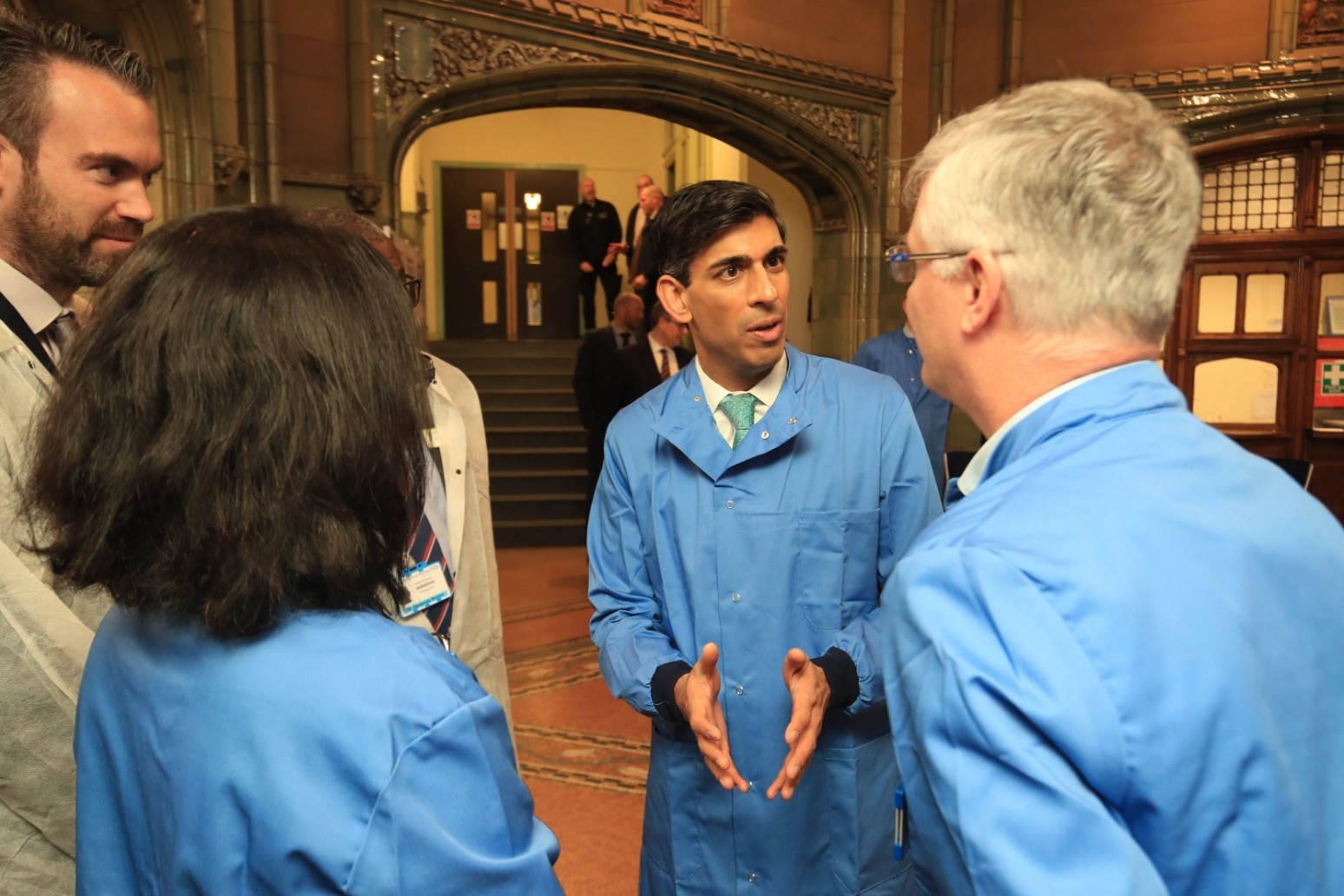
Think-tank warns over £575 yearly blow to households after 'grim' forecast
Every household will suffer a £575 annual blow due to the slump in the economic growth forecast, even before the impact of the coronavirus is factored in, a respected think-tank has warned. The Resolution Foundation said the GDP markdown from the Office for Budget Responsibility (OBR) financial watchdog was both "incredibly grim and yet still unbelievably optimistic".
Chancellor Rishi Sunak used his Budget to inject £30 billion in supporting the economy and softening the blow of the Covid-19 sickness ahead of the Government's expected ramping up of measures on Thursday.
The OBR warned that a "recession this year is quite possible" if the virus causes "widespread economic disruption", and predicted falling growth even before the coronavirus impact is reflected.
In its overnight assessment, the Resolution Foundation living standards think-tank delivered a stark warning over the OBR assessment, warning of "more difficult budgets ahead" for the Chancellor.
Chief executive Torsten Bell said: "The OBR managed to deliver an incredibly grim, and yet still unbelievably optimistic, pre-pandemic markdown to the UK's economic outlook - dealing a £600 a year hit to every household in Britain.
"In reality, once we take the economic impact of coronavirus into account, this is the weakest official growth outlook on record.
"And having finally returned to peak pay this year, real wage growth is set to weaken every year of the forecast period."
Before the impact of coronavirus is seen, growth was expected to fall to 1.1% in 2020, down from 1.2% last year and dramatically lower than the OBR's previous estimate of 1.4%.
The Resolution Foundation said the forecast leaves the economy £8.6 billion smaller in 2020 than anticipated last year, representing a £310 slump per household, with this drop rising to £575 in 2023.
The think-tank also warned of "big income shocks" for self-isolating workers with two million low-paid employees still lacking Statutory Sick Pay entitlement.
Later on Thursday, the influential Institute for Fiscal Studies think tank is to give its full verdict on the Budget.
Boris Johnson was also expected to announce after a Cobra meeting that the UK would move into the next phase of efforts to combat the coronavirus by seeking to delay the spread.
The Prime Minister's plans may include encouraging employees to work from home, shutting schools and advising elderly people to stay away from social contact.
Mr Sunak said he was taking a "prudent" approach to the public finances despite a Budget that amounted to the biggest giveaway since 1992.
He told the BBC: "I make absolutely no apology for responding in the short term in scale to the immediate threat that we face from coronavirus."
Mr Sunak conceded the growth forecasts were weak but he insisted sustained investment can fix this.
"I want to see higher growth in this country," he told BBC Radio 4's Today programme on Thursday.
"And that's why we set out an economic plan yesterday which involves a significant step-change in the amount of money we invest in capital and infrastructure in this country."
But he admitted there is a risk to the high-borrowing strategy.
He said: "You're absolutely right, you have to make a judgment about the persistence of low interest rates, that's a judgment I have to make as Chancellor.
"The reality is these interest rates have stayed lower for longer than anyone expected and keep falling, and it's right that I as someone in charge of managing our public finances has a view on that."
Published: by Radio NewsHub